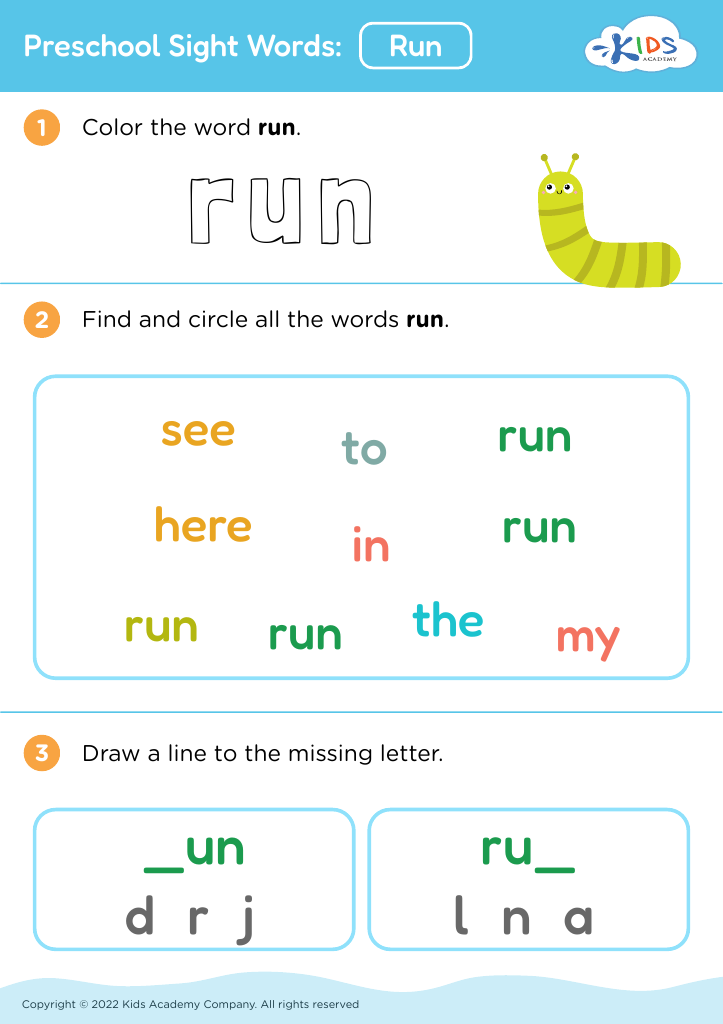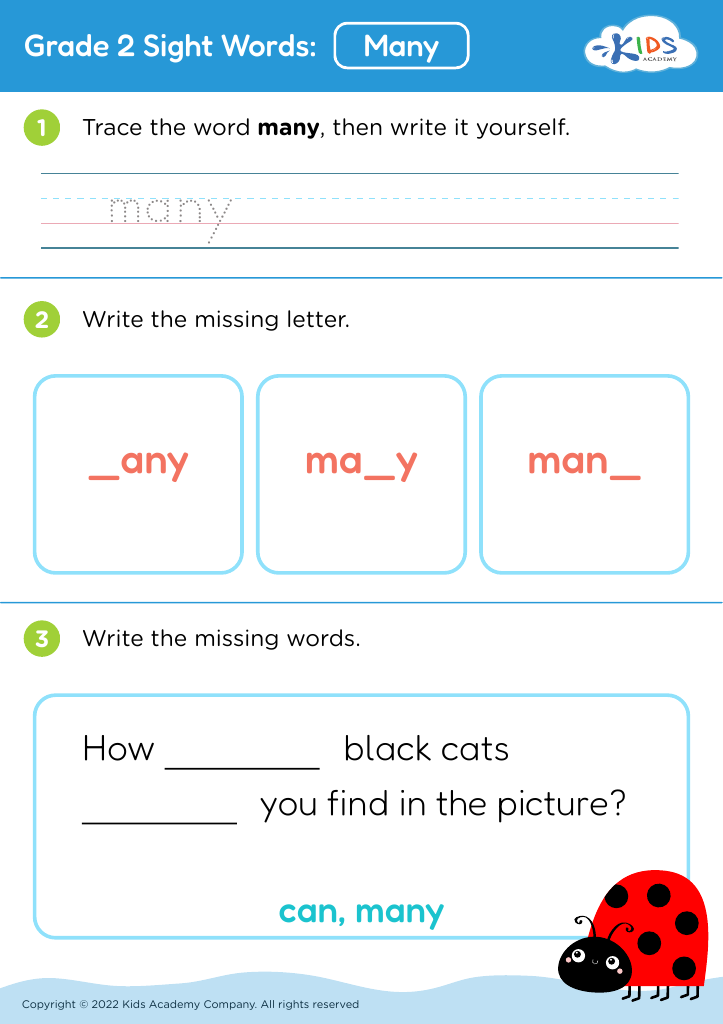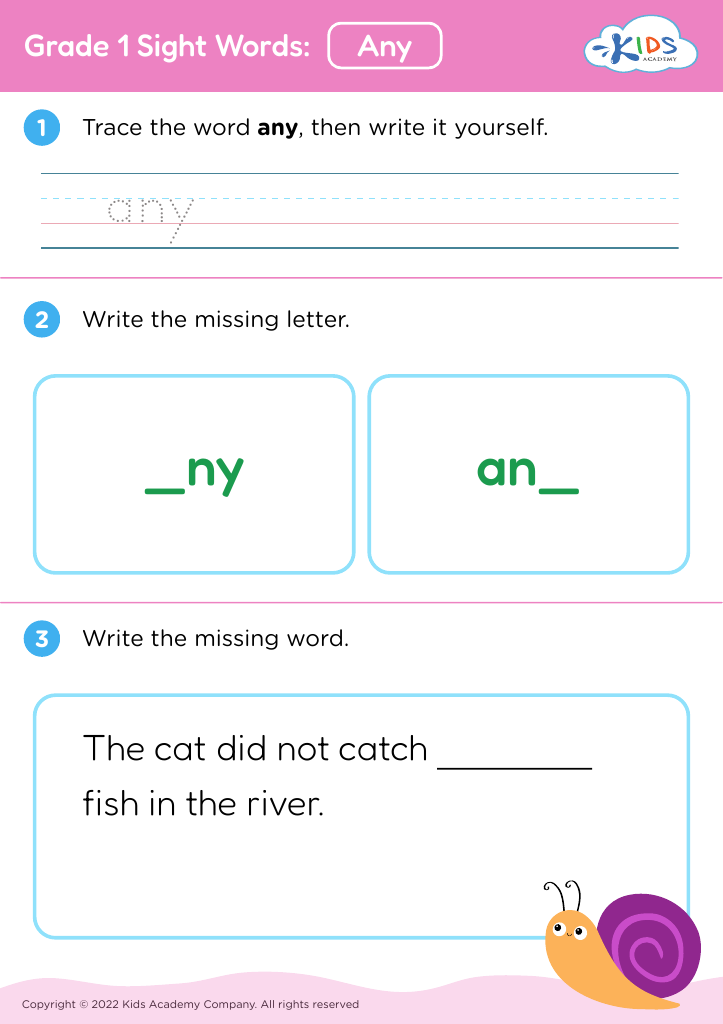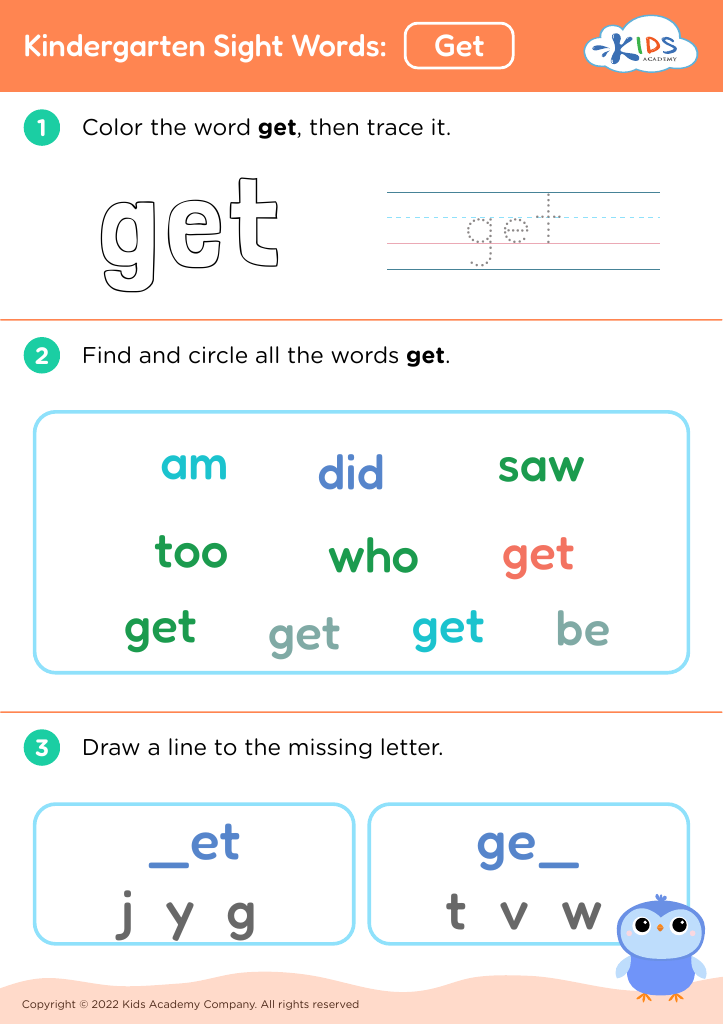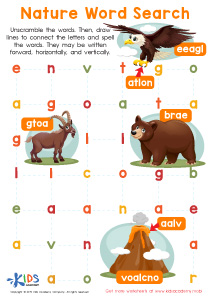Fraction simplification Sight Words Worksheets for Ages 4-8
15 filtered results
-
From - To
Discover our engaging Fraction Simplification Sight Words Worksheets designed for children aged 4-8! Perfect for early learners, these worksheets seamlessly blend foundational skills in sight word recognition with essential math concepts. Kids will enjoy fun, interactive activities as they simplify fractions while reinforcing their reading abilities. Our resources are thoughtfully crafted to promote cognitive development through hands-on learning. With vibrant illustrations and easy-to-follow instructions, children will boost their confidence in both language and math. Ideal for teachers and parents, these worksheets provide an effective way to encourage young learners to master crucial academic skills. Get started on their learning journey today!
Parents and teachers should pay close attention to fraction simplification and sight words for children aged 4 to 8 because both foundational skills are crucial for early mathematical and linguistic development.
Fraction simplification is an essential aspect of math literacy. Early exposure helps children understand fundamental concepts of part-whole relationships, which fosters critical thinking skills. When young learners grasp the basics of fractions, they build a strong mathematical foundation that will benefit them in more complex mathematics later on. Teaching fractions in a simplified way empowers children to approach problems confidently and encourages perseverance in learning.
Sight words, on the other hand, form the backbone of reading fluency. For ages 4 to 8, children are often learning to read for the first time. Familiarity with common sight words allows them to recognize and decode everyday texts effortlessly. This skill not only boosts their reading confidence but also enhances their overall literacy skills.
By focusing on both fraction simplification and sight words, parents and teachers are equipping children with essential tools to succeed in mathematics and reading. A strong grasp of both areas encourages a love of learning, critical thinking, and problem-solving—skills that are vital throughout their academic journeys.




